A red heart is a universal symbol of love synonymous (in some parts of the world) with Valentine’s Day and showing affection for those you care for most. While sending a red heart emoji via text or sharing a box of (dark, fair trade, and vegan) heart-shaped and chocolate-covered cherries may convey all the feels, heart-healthy foods can also say, “I love you.”
Science supports that the optimal diet for improving heart health and reducing the risk of chronic disease is whole food and plant-centric. These findings are no surprise considering cardiovascular disease is virtually nonexistent in parts of the world where people thrive on whole plant-based foods, like those living in the Blue Zone areas, such as Okinawa, Japan; Nicoya, Costa Rica; and Loma Linda, California.
The beautiful rainbow of colors found in the plant kingdom isn’t just candy for the eyes. These colors are manifested through phytochemicals, compounds specific only to plants, that protect them from their environment. Scientists have identified over 10,000 phytochemicals, many of which offer individual health benefits.
And among all of those potent phytochemicals, it just so happens that red-hued plant-based foods are among the best for heart health!
Why Red Foods?
Naturally occurring red foods such as tomatoes, grapefruit, apricots, and watermelons contain red pigments called carotenoids (lycopene, specifically), anthocyanins, and betacyanins that contain antioxidant properties beneficial for heart health. In addition, some red foods like beetroot, radishes, and red grapes contain polyphenols which produce nitric oxide in your body, a molecule that may help to dilate blood vessels and reduce blood pressure.
So a colorful, heart-healthy diet just wouldn’t be complete without the inclusion of red foods. And, thankfully, there are many from which to choose! Below, you’ll find some of our favorite red foods that provide boatloads of nutrition — especially heart-healthy antioxidants — to support overall well-being. We’ll also share some red-inspired tasty recipes to get you busy in the kitchen preparing delicious dishes to keep your heart healthy, mind vibrant, and body active.
Red Foods for Heart Health
1. Beets/Beetroot
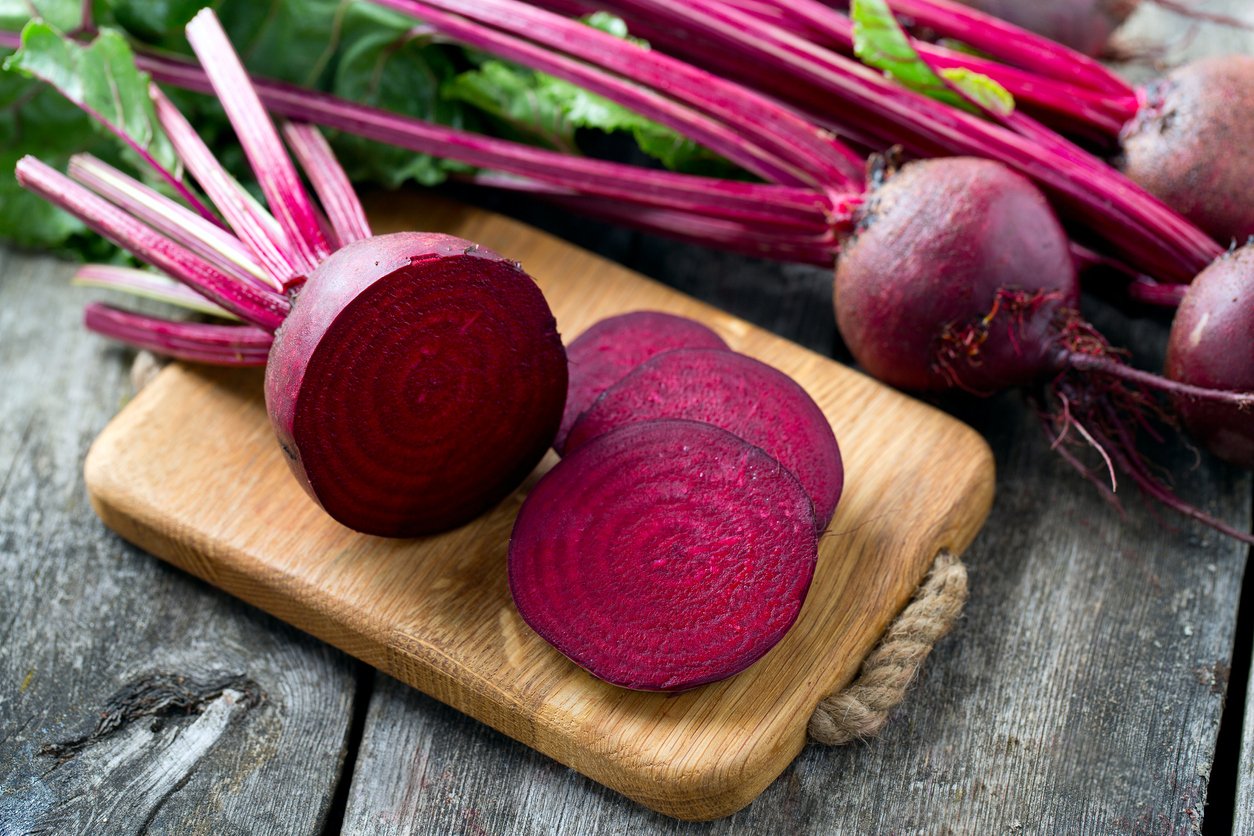
When you think of natural red foods, beets might spring to mind first. This root veggie contains vitamins, minerals, and nitrates, substances that your body converts into nitric oxide. Nitric oxide promotes blood vessel dilation, which may improve blood pressure and cardiovascular health. Important note: The intense red color of beets may change the color of your urine and stool to a shade of red, so don’t be alarmed if you notice this at your post-beet bathroom visit!
To boost your beet consumption, add pickled beets to your next salad.
2. Pomegranate
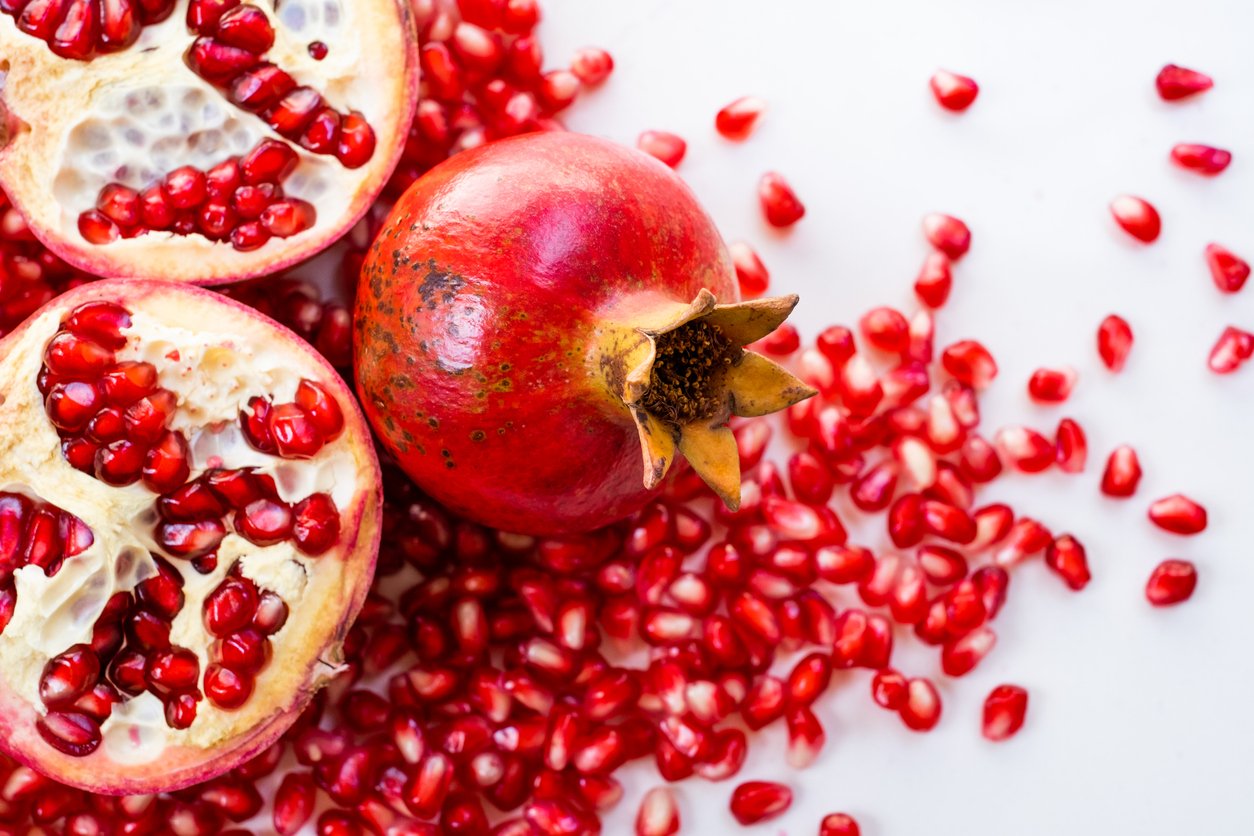
Besides being juicy and scrumptious, the tiny but mighty pomegranate aril is supercharged with nutritional value. Pomegranates contain a plethora of antioxidants, such as tannins, anthocyanins, ascorbic acid, and flavonoids, that (you guessed it!) protect your cells against free radical damage. They’re highly anti-inflammatory, making them a fantastic food for disease prevention. In addition, other preparations made from pomegranate (including its juice and extract) help prevent several health conditions, including heart disease, cancer, diabetes, high blood pressure, and high cholesterol. In terms of cardiovascular health, pomegranate has been found to protect against the oxidation of LDL cholesterol, which helps prevent atherosclerosis development and reduce the risk of cardiovascular events.
3. Red Onion
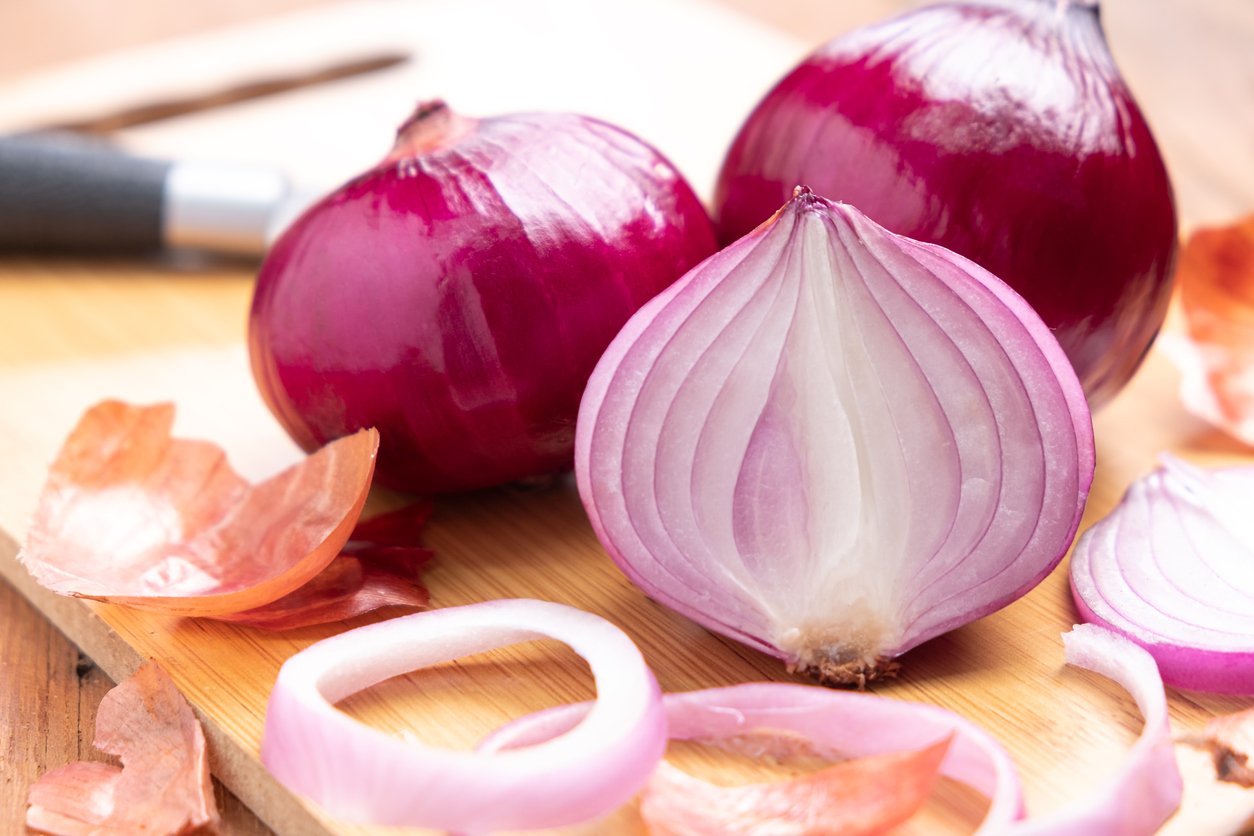
Red onions — yes, I know they look purple ;0 — get their bright hue from a group of flavonoids known as flavonols (anthocyanins, specifically). Over 25 different anthocyanins have been reported from red onions. They’re one of the best sources of quercetin, an antioxidant flavonol known to help maintain normal blood pressure.
In addition, red onions are loaded with the heart-healthy phytochemical allicin. Allicin protects the cardiovascular system by enhancing antioxidant activity, lowering the level of reactive oxygen species, and stimulating glutathione production. Also, allicin may help to reduce high blood pressure and LDL cholesterol.
And, last but not least, onions are a rich source of dietary fiber, which studies have shown may lower your risk of cardiovascular disease.
4. Tomatoes
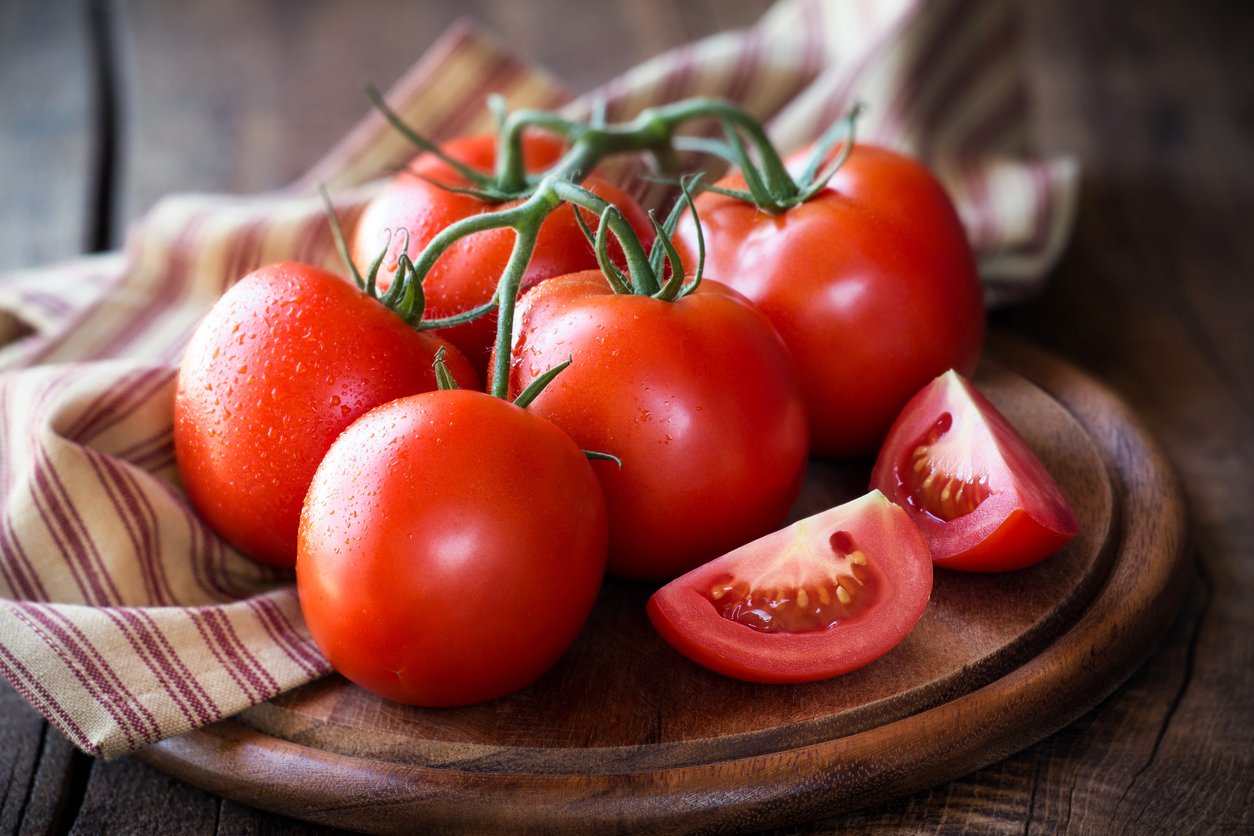
With thousands of varieties of tomatoes, there’s no shortage of ways to enjoy this healthy diet and garden staple. Tomatoes are a wildly popular and widely consumed fruit around the world. Similar to other red fruits and veggies, the bright red coloring of tomatoes is a result of the heart-protective carotenoid lycopene. This powerful antioxidant is beneficial for heart health because it can protect against free radical damage, lower the risks of stroke and heart attack, reduce LDL cholesterol, and help prevent blood clots. To get the biggest lycopene boost out of these juicy beauties, consider cooking some of your tomatoes instead of always eating them raw. While cooking tomatoes enhances the absorbability of lycopene, it can destroy water-soluble nutrients, like vitamin C, so mix it up for optimal overall nutrition.
5. Tart Cherries
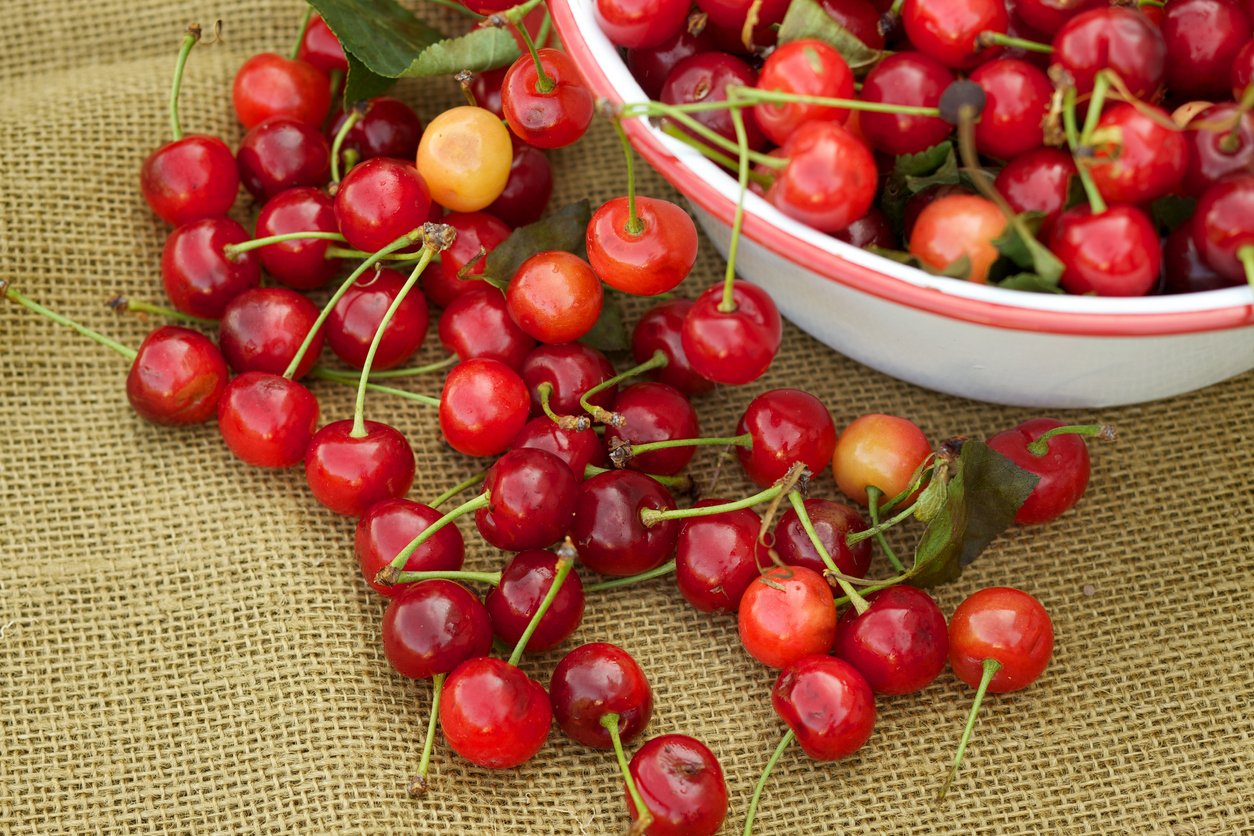
In addition to their plump texture and delicious flavor, sweet and tart cherries are rich in polyphenols and vitamin C, which help protect against cardiovascular disease due to their antioxidant and anti-inflammatory properties. Tart cherries are also rich in anthocyanins, another antioxidant that combats heart disease and supports muscle health and cell structures, including the heart. Additionally, regular consumption of tart cherry juice contributes to reduced cardiovascular disease risk factors by helping to lower blood pressure and LDL cholesterol.
6. Grapefruit
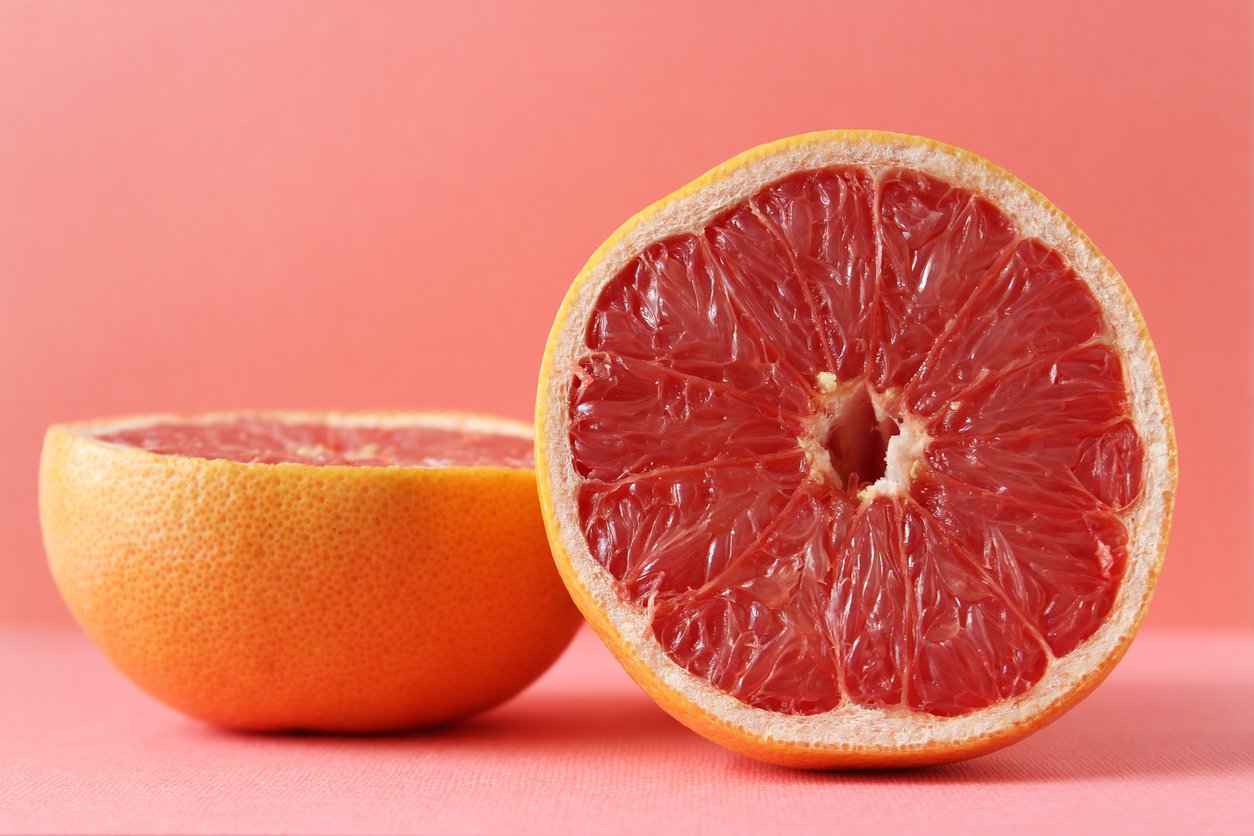
Grapefruit is beneficial for healthy weight management, which supports a healthy heart. Research also shows that consuming grapefruit regularly can help regulate high blood pressure and cholesterol levels in the blood. Plus, grapefruit is an excellent source of dietary fiber and potassium, two essential nutrients for heart health. Low potassium intake has been associated with elevated blood pressure and risk of stroke, while adequate consumption may protect against these cardiometabolic risk factors and improve cardiovascular health.
7. Red Kidney Beans
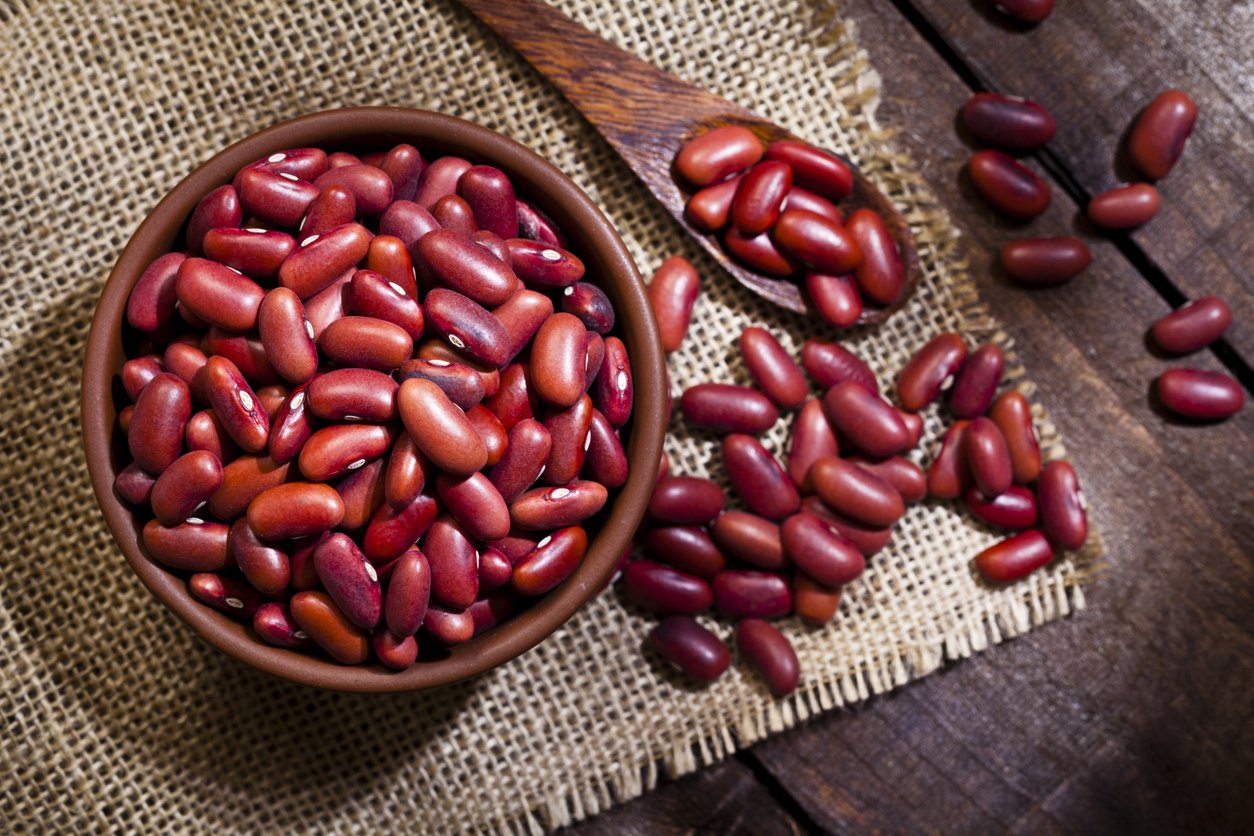
Beans, beans, the magical fruit, the more you eat, the more you boost your heart health! Legumes are excellent sources of insoluble and soluble fiber, which have been shown to lower LDL cholesterol, increase HDL cholesterol, manage blood sugar, and promote a healthy weight. The high fiber content of beans makes them an ideal red food for your heart. High dietary fiber intake has repeatedly been shown to reduce cholesterol and blood pressure, promoting a healthy heart. In addition, research shows that beans, like red kidney beans, may reduce your risk of cardiometabolic disease, including type 2 diabetes and cardiovascular disease — the leading cause of death worldwide.
Source: Adapted by Food Revolution
